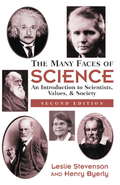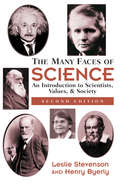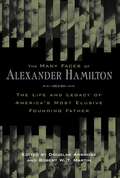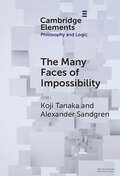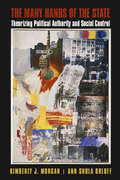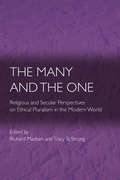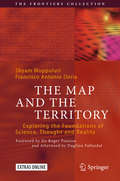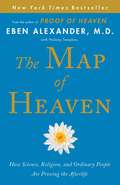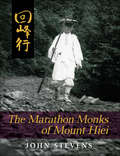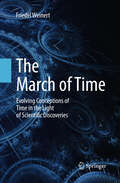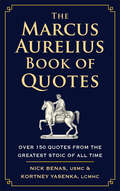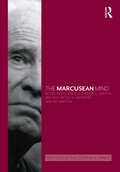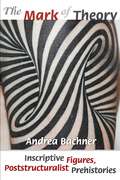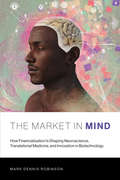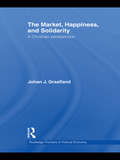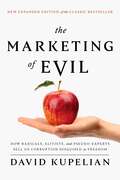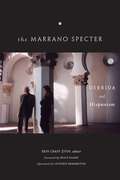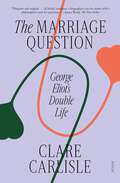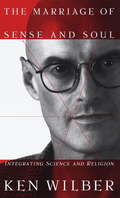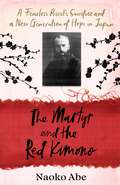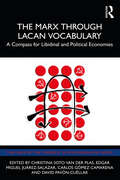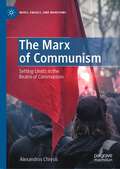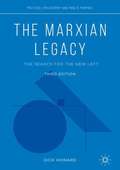- Table View
- List View
The Many Faces Of Science
by Henry Byerly Leslie StevensonThe development of modern science, and its increasing impact on our lives and cultures, is one of the great stories of our time. So, understanding--and coming to terms with--the institution of modern science should be an integral part of education. In The Many Faces of Science, Leslie Stevenson and Henry Byerly masterfully, and painlessly, provide the basic information and the philosophical reflection students need to gain such understanding. The authors make good use of case study methods, and they introduce us to dozens of figures from the history of science. Stevenson and Byerly provide an elementary sketch of the development of science through the lives of its practitioners, and they examine the often mixed motives of scientists, as well as the conflicting values people bring to science--and to their perceptions of its impact on society. The authors also explore the relationship between scientific practice and political and economic power. Accessible and rich with anecdotes, personal asides, and keen insight, The Many Faces of Science is the ideal interdisciplinary introduction for nonscientists in courses on science studies, science and society, and science and human values. It will also prove useful as supplementary reading in courses on science and philosophy, sociology, and political science. In this second edition of The Many Faces of Science, the authors have updated topics that they explore in the first edition, and they present new case studies on subjects such as HIV and AIDS, women in science, and work done in psychology and the social sciences. The authors also extend their discussion of science and values, in addition to revising their study of science and technology to emphasize changes in scientific practice today.
The Many Faces Of Science
by Henry Byerly Leslie StevensonThe development of modern science, and its increasing impact on our lives and cultures, is one of the great stories of our time. So, understanding--and coming to terms with--the institution of modern science should be an integral part of education. In The Many Faces of Science, Leslie Stevenson and Henry Byerly masterfully, and painlessly, provide the basic information and the philosophical reflection students need to gain such understanding. The authors make good use of case study methods, and they introduce us to dozens of figures from the history of science. Stevenson and Byerly provide an elementary sketch of the development of science through the lives of its practitioners, and they examine the often mixed motives of scientists, as well as the conflicting values people bring to science--and to their perceptions of its impact on society. The authors also explore the relationship between scientific practice and political and economic power.Accessible and rich with anecdotes, personal asides, and keen insight, The Many Faces of Science is the ideal interdisciplinary introduction for nonscientists in courses on science studies, science and society, and science and human values. It will also prove useful as supplementary reading in courses on science and philosophy, sociology, and political science. In this second edition of The Many Faces of Science, the authors have updated topics that they explore in the first edition, and they present new case studies on subjects such as HIV and AIDS, women in science, and work done in psychology and the social sciences. The authors also extend their discussion of science and values, in addition to revising their study of science and technology to emphasize changes in scientific practice today.
The Many Faces Of Science: An Introduction To Scientists, Values, And Society
by Henry ByerlyThe development of modern science, and its increasing impact on our lives and cultures, is one of the great stories of our time. So, understanding--and coming to terms with--the institution of modern science should be an integral part of education. In The Many Faces of Science, Leslie Stevenson and Henry Byerly masterfully, and painlessly, provide the basic information and the philosophical reflection students need to gain such understanding. The authors make good use of case study methods, and they introduce us to dozens of figures from the history of science. Stevenson and Byerly provide an elementary sketch of the development of science through the lives of its practitioners, and they examine the often mixed motives of scientists, as well as the conflicting values people bring to science--and to their perceptions of its impact on society. The authors also explore the relationship between scientific practice and political and economic power.Accessible and rich with anecdotes, personal asides, and keen insight, The Many Faces of Science is the ideal interdisciplinary introduction for nonscientists in courses on science studies, science and society, and science and human values. It will also prove useful as supplementary reading in courses on science and philosophy, sociology, and political science. In this second edition of The Many Faces of Science, the authors have updated topics that they explore in the first edition, and they present new case studies on subjects such as HIV and AIDS, women in science, and work done in psychology and the social sciences. The authors also extend their discussion of science and values, in addition to revising their study of science and technology to emphasize changes in scientific practice today.
The Many Faces of Alexander Hamilton: The Life and Legacy of America's Most Elusive Founding Father
by Robert W. Martin Douglas AmbroseThis anthology presents a variety of scholarly perspectives on the nation&’s most enigmatic Founding Father. Revolutionary War officer, co-author of the Federalist Papers, our first Treasury Secretary, Thomas Jefferson&’s nemesis, and victim of a fatal duel with Aaron Burr: Alexander Hamilton&’s legacy is complex, multifaceted, and difficult to pin down. On the one hand, Hamilton was the quintessential Founding Father, playing a central role in every key debate and event in the Revolutionary and Early Republic eras. On the other hand, he has received far less popular and scholarly attention than his brethren. Was Hamilton a closet monarchist or a sincere republican? A victim of partisan politics or one of its most active promoters? A lackey for British interests or a foreign policy mastermind? The Many Faces of Alexander Hamilton addresses these and other perennial questions. Leading Hamilton scholars, both historians and political scientists alike, present fresh evidence and new, sometimes competing, interpretations of the man, his thought, and the legacy he has had on America and the world.
The Many Faces of Impossibility (Elements in Philosophy and Logic)
by Koji Tanaka Alexander SandgrenPossible worlds have revolutionised philosophy and some related fields. But, in recent years, tools based on possible worlds have been found to be limited in many respects. Impossible worlds have been introduced to overcome these limitations. This Element aims to raise and answer the neglected question of what is characteristically impossible about impossible worlds. The Element sheds new light on the nature of impossible worlds. It also aims to analyse the main features and utility of impossible worlds and examine how impossible worlds can capture distinctions which are unavailable if we limit ourselves to possible world-based tools.
The Many Hands of the State
by Morgan Kimberly J. Orloff Ann SholaThe state is central to social scientific and historical inquiry today, reflecting its importance in domestic and international affairs. States kill, coerce, fight, torture, and incarcerate, yet they also nurture, protect, educate, redistribute, and invest. It is precisely because of the complexity and wide-ranging impacts of states that research on them has proliferated and diversified. Yet, too many scholars inhabit separate academic silos, and theorizing of states has become dispersed and disjointed. This book aims to bridge some of the many gaps between scholarly endeavors, bringing together scholars from a diverse array of disciplines and perspectives who study states and empires. The book offers not only a sample of cutting-edge research that can serve as models and directions for future work, but an original conceptualization and theorization of states, their origins and evolution, and their effects.
The Many and the One: Religious and Secular Perspectives on Ethical Pluralism in the Modern World (Ethikon Series in Comparative Ethics)
by Richard Madsen & Tracy B. StrongThe war on terrorism, say America's leaders, is a war of Good versus Evil. But in the minds of the perpetrators, the September 11 attacks on New York and Washington were presumably justified as ethically good acts against American evil. Is such polarization leading to a violent "clash of civilizations" or can differences between ethical systems be reconciled through rational dialogue? This book provides an extraordinary resource for thinking clearly about the diverse ways in which humans see good and evil. In nine essays and responses, leading thinkers ask how ethical pluralism can be understood by classical liberalism, liberal-egalitarianism, critical theory, feminism, natural law, Confucianism, Islam, Judaism, and Christianity. Each essay addresses five questions: Is the ideal society ethically uniform or diverse? Should the state protect, ban, or otherwise intervene in ethically based differences? How should disagreements on the rights and duties of citizens be dealt with? Should the state regulate life-and-death decisions such as euthanasia? To what extent should conflicting views on sexual relationships be accommodated? This book shows that contentious questions can be discussed with both incisiveness and civility. The editors provide the introduction and Donald Moon, the conclusion. The contributors are Brian Barry, Joseph Boyle, Simone Chambers, Joseph Chan, Christine Di Stefano, Dale F. Eickelman, Menachem Fisch, William Galston, John Haldane, Chandran Kukathas, David Little, Muhammad Khalid Masud, Carole Pateman, William F. Scheuerman, Adam B. Seligman, James W. Skillen, James Tully, and Lee H. Yearley.
The Map and the Territory
by Shyam Wuppuluri Francisco Antonio DoriaThis volume presents essays by pioneering thinkers including Tyler Burge, Gregory Chaitin, Daniel Dennett, Barry Mazur, Nicholas Humphrey, John Searle and Ian Stewart. Together they illuminate the Map/Territory Distinction that underlies at the foundation of the scientific method, thought and the very reality itself. It is imperative to distinguish Map from the Territory while analyzing any subject but we often mistake map for the territory. Meaning for the Reference. Computational tool for what it computes. Representations are handy and tempting that we often end up committing the category error of over-marrying the representation with what is represented, so much so that the distinction between the former and the latter is lost. This error that has its roots in the pedagogy often generates a plethora of paradoxes/confusions which hinder the proper understanding of the subject. What are wave functions? Fields? Forces? Numbers? Sets? Classes? Operators? Functions? Alphabets and Sentences? Are they a part of our map (theory/representation)? Or do they actually belong to the territory (Reality)? Researcher, like a cartographer, clothes (or creates?) the reality by stitching multitudes of maps that simultaneously co-exist. A simple apple, for example, can be analyzed from several viewpoints beginning with evolution and biology, all the way down its microscopic quantum mechanical components. Is there a reality (or a real apple) out there apart from these maps? How do these various maps interact/intermingle with each other to produce a coherent reality that we interact with? Or do they not?Does our brain uses its own internal maps to facilitate “physicist/mathematician” in us to construct the maps about the external territories in turn? If so, what is the nature of these internal maps? Are there meta-maps? Evolution definitely fences our perception and thereby our ability to construct maps, revealing to us only those aspects beneficial for our survival. But the question is, to what extent? Is there a way out of the metaphorical Platonic cave erected around us by the nature? While “Map is not the territory” as Alfred Korzybski remarked, join us in this journey to know more, while we inquire on the nature and the reality of the maps which try to map the reality out there. The book also includes a foreword by Sir Roger Penrose and an afterword by Dagfinn Follesdal.
The Map of Heaven: How Science, Religion, and Ordinary People Are Proving the Afterlife
by Ptolemy Tompkins Eben AlexanderThe author of the #1 New York Times bestseller Proof of Heaven teams up with the sages of times past, modern scientists, and with ordinary people who have had profound spiritual experiences to show the reality of heaven and our true identities as spiritual beings.When Proof of Heaven was published, some readers contacted Dr. Eben Alexander to argue that his near-death experience was impossible. But many more have written to say his story resonated with them in profound ways. Thanks to them, Dr. Alexander came to realize that sharing his story has allowed people to rediscover what so many in ancient times knew: there is more to life--and to the universe--than this single earthly life. Dr. Alexander met and heard from thousands of individuals whom his story has affected. He, with coauthor Ptolemy Tompkins, also studied what the world's religious traditions, philosophers, and scientists have had to say about the soul's survival of death. He has been deeply surprised at how often those voices from the past sync up with what he hears from people today. In The Map of Heaven, he shares some of the stories that people have told him and links them to what the world's spiritual traditions and its latest scientific insights have to say about the journey of the soul. Part metaphysical and scientific detective story, part manual for living, The Map of Heaven explores humankind's spiritual history and the progression of modern science from its birth in the seventeenth century, showing how we forgot, and are now at last remembering, who we really are and what our destiny truly is.
The Marathon Monks of Mount Hiei
by John StevensThe greatest athletes in the world today are not the Olympic champions or the stars of professional sports, but the "marathon monks" of Japan's sacred Mount Hiei. Over a seven-year training period, these "running buddhas" figuratively circle the globe on foot. During one incredible 100-day stretch, they cover 52.5 miles daily--twice the length of an Olympic marathon. And the prize they seek to capture is the greatest thing a human being can achieve: enlightenment in the here and now. This book is about these amazing men, the magic mountain on which they train, and the philosophy of Tendai Buddhism, which inspires them in their quest for the supreme. The reader will learn about the monks' death-defying fasts, their vegetarian training diet, their handmade straw running shoes, and feats of endurance such as their ceremonial leap into a waterfall. Illustrated with superb photographs, the book also contains the first full-length study in English of Mount Hiei and Tendai Buddhism. John Stevens lived in Japan for thirty-five years, where he was a professor of Buddhist studies at Tohoku Fukushi University in Sendai. Stevens is a widely respected translator, an ordained Buddhist priest, a curator of several major exhibitions of Zen art, and an aikido instructor. He has authored more than thirty books and is one of the foremost Western experts on aikido, holding a ranking of 7th dan Aikikai. Stevens has also studied calligraphy for decades, authoring the classic Sacred Calligraphy of the East. Other John Stevens titles that are likely to be of interest include Extraordinary Zen Masters and The Philosophy of Aikido.
The March of Time
by Friedel WeinertThe aim of this interdisciplinary study is to reconstruct the evolution of our changing conceptions of time in the light of scientific discoveries. It will adopt a new perspective and organize the material around three central themes, which run through our history of time reckoning: cosmology and regularity; stasis and flux; symmetry and asymmetry. It is the physical criteria that humans choose - relativistic effects and time-symmetric equations or dynamic-kinematic effects and asymmetric conditions - that establish our views on the nature of time. This book will defend a dynamic rather than a static view of time.
The Marcus Aurelius Book of Quotes: Over 150 Quotes from the Greatest Stoic of All Time
by Nick Benas Kortney YasenkaDiscover the timeless wisdom of Marcus Aurelius, one of history's greatest Stoic philosophers, in this compelling collection of quotes and sayings.Marcus Aurelius lived a life that epitomized the principles of Stoicism, gaining profound control over his thoughts, emotions, and actions. The Marcus Aurelius Book of Quotes brings together over 150 of his most insightful sayings, musings, and observations, offering readers a treasure trove of wisdom.In a world where many strive to improve their lives, find happiness, and achieve fulfillment, Marcus Aurelius' teachings provide enduring guidance. His reflections address fundamental questions such as:• What will make me feel more fulfilled?• How can I build stronger relationships?• What contributes to a successful and meaningful life?• How can I live free from anxiety and depression?The teachings of Marcus Aurelius offer a roadmap to a balanced, contented, and purposeful life. The wisdom contained in The Marcus Aurelius Book of Quotes continues to resonate, offering clarity and direction for those seeking to navigate the complexities of modern living.
The Marcusean Mind (Routledge Philosophical Minds)
by Eduardo Altheman C. Santos Jina Fast Nicole K. Mayberry Sid SimpsonHerbert Marcuse (1898–1979) was a member of the Frankfurt School, a leading figure of 1960s counterculture, and a fundamental character for the New Left. His ideas and theories, inspired by a rich fusion of Marxian and Freudian thought, exert a strong influence on contemporary thinking about activism, emancipation, and political resistance. He was also a student of Martin Heidegger in the late 1920s and engaged deeply with philosophy throughout his career.The Marcusean Mind is an outstanding survey and assessment of Marcuse's thought. Beginning with a thorough introduction to Marcuse's life and work, 39 chapters by an international and interdisciplinary team of contributors are organized into five clear parts: Intellectual Ecosystems of Marcuse Reason and Sensibilities Futures and Utopias Contemporary Movements Counterrevolutions, Neoliberalism, and Fascism These sections each contain a short introduction, after which Marcusean ideas are brought to bear on many key contemporary debates and issues across the humanities, social sciences, and science and technology.Including a Foreword by Craig Calhoun and an Afterword by Douglas Kellner, The Marcusean Mind is a superb resource for anyone interested in Marcuse's thought and its legacy. It is valuable reading for students of contemporary political theory, activism, philosophy, sociology, media and cultural studies, critical legal studies, and race and gender studies.
The Mark of Theory: Inscriptive Figures, Poststructuralist Prehistories
by Andrea BachnerWhat imaginaries, tropes, and media have shaped how we theorize? The Mark of Theory argues that inscription constitutes one of the master metaphors of contemporary theory.As a trope that draws on a wide array of practices of marking, from tattooing to circumcision, from photographic imprints and phonographic grooves to marks on a page, inscription provides an imaginary that orients and irritates theoretical thought. Tracing inscriptive imaginaries from the late nineteenth century to today, The Mark of Theory offers a wide-ranging conceptual genealogy of contemporary thought. Navigating poststructuralism’s attention to figurative language as well as media theory’s attention to objects, phenomena, and practices of mediation, the book works through core questions for how we theorize. Across a range of disciplines and scholarly conversations—from literature and media to anthropology, race and gender, art, psychoanalysis, sound, and ultimately ethics—sites of inscription come to constitute the past legacy of a thought to come, a prehistory of our current moment.In focusing on materiality and mediation The Mark of Theory shows how inscriptive practices shape conceptual thought, as well as political and ethical choices. By contextualizing the fraught relationship between materiality and signification, The Mark of Theory lays the ground for a politics of theory that begins there where theory and politics are no longer conflated.
The Market as God
by Harvey CoxThe Market has deified itself, according to Harvey Cox's brilliant exegesis. And all of the world's problems--widening inequality, a rapidly warming planet, the injustices of global poverty--are consequently harder to solve. Only by tracing how the Market reached its divine status can we hope to restore it to its proper place as servant of humanity.
The Market in Mind: How Financialization Is Shaping Neuroscience, Translational Medicine, and Innovation in Biotechnology (The\mit Press Ser.)
by Mark Dennis RobinsonA critical examination of translational medicine, when private risk is transferred to the public sector and university research teams become tech startups for global investors.A global shift has secretly transformed science and medicine. Starting in 2003, biomedical research in the West has been reshaped by the emergence of translational science and medicine—the idea that the aim of research is to translate findings as quickly as possible into medical products. In The Market in Mind, Mark Dennis Robinson charts this shift, arguing that the new research paradigm has turned university research teams into small biotechnology startups and their industry partners into early-stage investment firms. There is also a larger, surprising consequence from this shift: according to Robinson, translational science and medicine enable biopharmaceutical firms, as part of a broader financial strategy, to outsource the riskiest parts of research to nonprofit universities. Robinson examines the implications of this new configuration. What happens, for example, when universities absorb unknown levels of risk? Robinson argues that in the years since the global financial crisis translational science and medicine has brought about “the financialization of health.”Robinson explores such topics as shareholder anxiety and industry retreat from Alzheimer's and depression research; how laboratory research is understood as health innovation even when there is no product; the emergence of investor networking events as crucial for viewing science in a market context; and the place of patients in research decisions. Although translational medicine justifies itself by the goal of relieving patients' suffering, Robinson finds patients' voices largely marginalized in translational neuroscience.
The Market, Happiness and Solidarity: A Christian Perspective (Routledge Frontiers Of Political Economy Ser. #129)
by Johan J. GraaflandThe past two decades of market operation has generated welfare and economic growth in Western countries, but increasing income inequalities, depletion of the natural environment and the current financial crisis have led to an intense debate about the advantages and disadvantages of the free market. With this book, Professor Graafland makes a valuable contribution to the Christian debate about the market economy. In particular, it aims to clarify the links between ethical values, Christian belief and economics, as well as informing theologians and economists about recent economic insights into market operation. The book investigates the effect of free market operation on welfare and well-being, calling into question why one would favour more market competition as a means of increasing happiness. As well as this, Professor Graafland examines how free market competition relates to principles of justice and looks at whether it enforces or crowds out Christian virtues like love, humility and temperance. Books that systematically link biblical teaching about the economy to recent theoretical and empirical research in economics on free market operation are rare. Most Christian books on the market system are theologically oriented, lacking a sound basis in the extensive knowledge of the recent economic literature on market operation. This book confronts Christian ethical standards with current economic literature on the effects of market operation on welfare, happiness, human rights, inequality and virtues in order to develop a well-based and balanced view of the pros and cons of market operation. This book will be of interest to both undergraduate and postgraduate students of economics, philosophy and theology.
The Marketing of Evil: How Radicals, Elitists, and Pseudo-Experts Sell Us Corruption Disguised As Freedom
by David KupelianMillions of Americans today embrace ideas and behaviors that would have horrified all previous generations. Why?Why have thousands of years of Judeo-Christian moral standards – the very foundation of Western Civilization – been demonized and criminalized? Why are America's families disintegrating and her schools and colleges poisoning the minds of our youth? Why is our culture becoming ever more bizarre, corrupt, degraded and deranged? Why are 3,000 innocent American children aborted daily? In this widely acclaimed exposé, veteran journalist David Kupelian reveals the brilliant marketing strategies that have turned America upside down: "Within the space of our lifetime, much of what Americans once almost universally abhorred has been packaged, perfumed, gift-wrapped, and sold to us as though it had great value. By skillfully playing on our deeply felt national values of fairness, generosity, and tolerance, these marketers have persuaded us to embrace as enlightened and noble that which every other generation has regarded as grossly self-destructive? In a word, evil." Now, in a new and expanded edition of his culture-war classic, David Kupelian continues to expose the ever-more audacious marketing campaigns and grand deceptions that threaten the very future of America. NEW EXPANDED EDITION OF THE CLASSIC BESTSELLER! "David Kupelian is one of the most thought-provoking and iconoclastic writers I know." — SEAN HANNITY "Every parent in America needs to read this book. David Kupelian skillfully exposes the secular Left's rotten-apple peddlers in devastating detail." — MICHELLE MALKIN "If you really want to understand the adversary's thinking and help turn the tide of battle, read this book!" — DAVID LIMBAUGH
The Marrano Specter: Derrida and Hispanism
by Erin Graff ZivinThe Marrano Specter pursues the reciprocal influence between Jacques Derrida and Hispanism. On the one hand, Derrida’s work has engendered a robust conversation among philosophers and critics in Spain and Latin America, where his work circulates in excellent translation, and where many of the terms and problems he addresses take on a distinctive meaning: nationalism and cosmopolitanism; spectrality and hauntology; the relation of subjectivity and truth; the university; disciplinarity; institutionality.Perhaps more remarkably, the influence is in a profound sense reciprocal: across his writings, Derrida grapples with the theme of marranismo, the phenomenon of Sephardic crypto-Judaism. Derrida’s marranismo is a means of taking apart traditional accounts of identity; a way for Derrida to reflect on the status of the secret; a philosophical nexus where language, nationalism, and truth-telling meet and clash in productive ways; and a way of elaborating a critique of modern biopolitics. It is much more than a simple marker of his work’s Hispanic identity, but it is also, and irreducibly, that.The essays collected in The Marrano Specter cut across the grain of traditional Hispanism, but also of the humanistic disciplines broadly conceived. Their vantage point—the theoretical, philosophically inflected critique of disciplinary practices—poses uncomfortable, often unfamiliar questions for both hispanophone studies and the broader theoretical humanities.
The Marriage Question: George Eliot's Double Life
by Clare CarlisleNamed one of the ten Best Reviewed Nonfiction Books of 2023 by Literary Hub A startling new portrait of George Eliot, the beloved novelist and a rare philosophical mind who explored the complexities of marriage.In her mid-thirties, Marian Evans transformed herself into George Eliot—an author celebrated for her genius as soon as she published her debut novel. During those years she also found her life partner, George Lewes—writer, philosopher, and married father of three. After “eloping” to Berlin in 1854, they lived together for twenty-four years: Eliot asked people to call her "Mrs Lewes" and dedicated each novel to her "Husband." Though they could not legally marry, she felt herself initiated into the "great experience" of marriage—"this double life, which helps me to feel and think with double strength." The relationship scandalized her contemporaries yet she grew immeasurably within it. Living at once inside and outside marriage, Eliot could experience this form of life—so familiar yet also so perplexing—from both sides. In The Marriage Question, Clare Carlisle reveals Eliot to be not only a great artist but also a brilliant philosopher who probes the tensions and complexities of a shared life. Through the immense ambition and dark marriage plots of her novels, we see Eliot wrestling—in art and in life—with themes of desire and sacrifice, motherhood and creativity, trust and disillusion, destiny and chance. Carlisle's searching new biography explores how marriage questions grow and change, and joins Eliot in her struggle to marry thought and feeling.Includes black-and-white images
The Marriage of Sense and Soul: Integrating Science and Religion
by Ken WilberThere is arguably no more critical and pressing topic than the relation of science and religion in the modern world. Science has given us the methods for discovering truth, while religion remains the single greatest force for generating meaning. Yet the two are seen as mutually exclusive, with wrenching consequences for humanity. In The Marriage of Sense and Soul, one of today's most important philosophers brilliantly articulates how we might begin to think about science and religion in ways that allow for their reconciliation and union, on terms that will be acceptable to both camps. Ken Wilber is widely acclaimed as the foremost thinker in integrating Western psychology and the Eastern spiritual traditions. His many books have reached across disciplines and synthesized the teachings of religion, psychology, physics, mysticism, sociology, and anthropology, earning him a devoted international following. The Marriage of Sense and Soul is his most accessible work yet, aimed at guiding a general audience to the mutual accord between the spiritual, subjective world of ancient wisdom and the objective, empirical world of modern knowledge. Wilber clearly and succinctly explores the schism between science and religion, and the impact of this "philosophical Cold War" on the fate of humanity. He systematically reviews previous attempts at integration, explaining why romantic, idealistic, and postmodern theories failed. And he demonstrates how science is compatible with certain deep features common to all of the world's major religious traditions. In pointing the way to a union between truth and meaning, Ken Wilber has created an elegant and accessible book that is breathtaking in its scope.From the Hardcover edition.
The Martyr and the Red Kimono: A Fearless Priest’s Sacrifice and A New Generation of Hope in Japan
by Naoko AbeThe remarkable true story of Saint Maximilian Kolbe, and the two men in war-torn Japan whose lives he changed forever.On the 14th of August 1941, a Polish priest named Maximilian Maria Kolbe was murdered in Auschwitz.Kolbe's life had been remarkable. Fiercely intelligent and driven, he founded a movement of Catholicism and spent several years in Nagasaki, ministering to the 'hidden Christians' who had emerged after centuries of oppression. A Polish nationalist as well as a priest, he gave sanctuary to fleeing refugees and ran Poland's largest publishing operation, drawing the wrath of the Nazis. His death was no less remarkable: he volunteered to die, saving the life of a fellow prisoner.It was an act that profoundly transformed the lives of two Japanese men. Tomei Ozaki was just seventeen when the US dropped an atomic bomb on Nagasaki, destroying his home and his family. Masatoshi Asari worked on a farm in Hokkaido during the war and was haunted by the inhumane treatment of prisoners in a nearby camp. Forged in the crucible of an unforgiving war, both men drew inspiration from Kolbe's sacrifice, dedicating their lives to humanity and justice. Ozaki followed in his footsteps and became a friar. Asari created cherry trees as peace offerings.In The Martyr and the Red Kimono, award-winning author Naoko Abe weaves together a deeply moving and inspirational true story of resistance, sacrifice, guilt and atonement.
The Marx Through Lacan Vocabulary: A Compass for Libidinal and Political Economies
by Christina Soto van der Plas, Edgar Miguel Juárez-Salazar, Carlos Gómez Camarena and David Pavón-CuéllarThis text explores a set of key concepts in Marxist theory as developed and read by Lacan, demonstrating links and connections between Marxist thought and Lacanian practice. The book examines the complexity of these encounters through the structure of a comprehensive vocabulary which covers diverse areas, from capitalism and communism to history, ideology, politics, work, and family. Offering new perspectives on these concepts in psychoanalysis, as well as in the fields of political and critical theory, the book brings together contributions from a range of international experts to demonstrate the dynamic relationship between Marx and Lacan, as well as illuminating "untranslatable points" which may offer productive tension between the two. The entries trace the trajectory of Lacan’s appropriation of Marx’s concepts and analyses how they were questioned, criticized, and reworked by Lacan, accounting for the wide reach of two thinkers and worlds in constant homology. Each entry also discusses psychoanalytic debates relating to the concept and seeks to refine the clinical scope of Marx’s work, demonstrating its impact on the social and individual dimensions of Lacanian clinical practice. With a practical and structured approach, The Marx through Lacan Vocabulary will appeal to psychoanalysts and researchers in a range of fields, including political science, cultural studies, and philosophy.
The Marx of Communism: Setting Limits in the Realm of Communism (Marx, Engels, and Marxisms)
by Alexandros ChrysisFollowing Marx’s own itinerary from Paris to London, from politics to the critique of political economy, The Marx of Communism delves into a creatively unfolding international debate on the democracy-communism relation, while supporting a 21st century communism as a social alternative to capitalism. Taking into consideration Marx’s analysis of communism both as a movement and a social formation, this study focuses on the dialectics of transition from capitalism to communism. Dealing with communism as the outcome of a long-term cultural and political process, the author defends Marxian communism as the open-ended constitution of a self-governed demos, whose citizens create their own way of life on the ground of a stateless and classless society. From this point of view, the end of the state does not mean the end, but the revival of politics in terms of a communist bios. Reshaping their collective and personal values and setting limits to the production/technology dynamics of their economy, this book argues, the citizens of a communist polis form a promising antithesis to the private individuals of a capitalist society.
The Marxian Legacy: The Search for the New Left (Political Philosophy and Public Purpose)
by Dick HowardThe Marxian Legacy, first published in 1977 and released in a second edition in 1988, was and remains distinct in its view of Marxian theory as 'critique, ' aware of its own origins and limitations and self-conscious about its own historical rootedness in changing social and political conditions. This new and fully revised third edition retains the original synthesis of the divergent traditions of German, critical, and French Marxisms into a living Marxian legacy that changes and reconceptualizes itself, while also providing a new critical introduction and concluding chapter. Such a re-evaluation of the Marxian legacy, which was urgent in the 1970s when the United States was caught up in imperial wars and domestic as well as racial conflict, remains relevant today when—as was the case nearly half a century ago—Marx’s legacy has largely been forgotten and yet remains as a symbol of radical thinking that could inspire the new movements. The Marxian Legacy, 3rd Edition retains the freshness of discovery from those times while fully updating the text for our contemporary moment, and adding two features: a philosophical closure; and, a perspective on what was possible then, and what remains to be done today.
